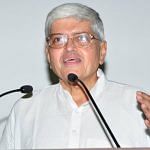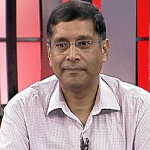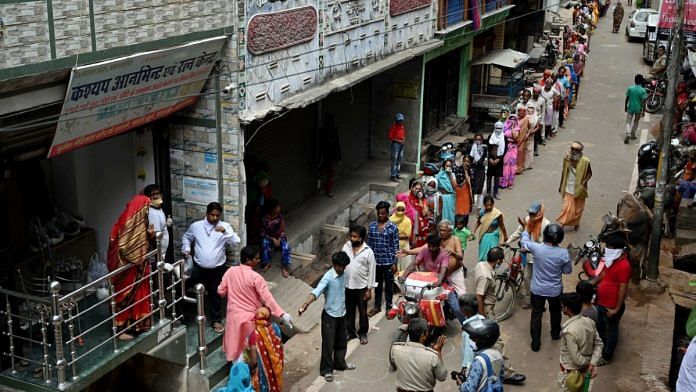April’s cruel dilemma
Aruna Sundararajan | Retired civil servant
The Indian Express
As India enters day 20 of the nationwide lockdown scheduled to end on 14 April, Sundararajan puts forth the dilemma of extending the lockdown and its trade-offs. Instead of a blanket lockdown, she offers a unique arrangements “depending on the varying locational intensity of the disease…with differing containment strategies for more vulnerable sections like the aged; and with a more liberal containment regime in place for essential activities like agriculture.” Highlighting that the solution needs to be beyond extension, Sundararajan underscored the need for “the widest possible public consultation” before any decision is taken.
Wanted, a collective national endeavour
Rammanohar Reddy | Editor of the digital publication,The India Forum
The Hindu
Reddy argues, “Covid-19 calls for a largeness of political vision that will bring all of India together to get the better of the virus.” In his call for a national government, he says this is not the time for political gains but for everyone to come together, and this movement should be led by the ruling party. He urges the Centre and State to work in unison and shift in focus from a PMO-centric decision making body. He calls out the government for being “stingy” with its relief measures for the migrant labourers and poor. “We are in the middle of a humanitarian disaster that would have been worse but for the efforts of the State governments,” he notes.

What would Gandhi have done today?
Gopalkrishna Gandhi | Former administrator, diplomat and governor
Hindustan Times
Gandhi writes, “In times of a health crisis, he (Mahatma Gandhi) showed exceptional care and extreme sternness. India is doing it now.” Giving examples of how Mahatma Gandhi dealt with the plague back from his days in South Africa and when Ahmedabad faced a rabid stray dogs problem, Gopalkrishna underscores his sternness and empathy. On doctors and health workers risking their lives, he says, “We, citizens, must replace the icons of commerce, the creators of the market, manipulators of our political, social and cultural mindsets, all these false gods and goddesses, by these real-life bravehearts who have put their lives at risk to halt the virus in its tracks.”
Covid-19: An epidemic is an epidemic. A war is a war

Suyash Rai | Fellow at Carnegie India, New Delhi
Rahul Verma | Fellow at the Centre for Policy Research respectively
Hindustan Times
On how the term “war” has turned into a metaphor in India when discussing the pandemic, Rai and Verma note, “Major wars and major epidemics are serious threats, but they differ from each other.” Rai and Verma differentiate between a war and a pandemic in four ways. The first one highlights the trade-offs in decision-making during a pandemic and how that is not subject to decision-making during a war. Second, a war has a blanket outcome for the whole nation, but a pandemic affects different parts of the country differently. Third, the economics of war and that of a pandemic differ in that “major wars require shutting down a large part of normal economic activity to divert people, materials, productive capacities and finances towards waging the war.” Fourth, while the government leads in a war, the same is not applicable to a pandemic. Rai and Verma quote English bishop and theologian Joseph Butler, “Everything is what it is, and not another thing. An epidemic is an epidemic. A war is a war.”
Solidarity today, new social compact tomorrow

Devesh Kapur | Director of Asia Programs and Professor South Asian Studies at The Johns Hopkins University
Arvind Subramanian | Former Chief Economic Adviser to the Government of India
Business Standard
Kapur and Subramanian argue that Covid-19 could be an opportunity for India to rethink its future with the wealthy showing solidarity towards those devastated by the crisis through a national solidarity fund. Taxing the rich, freezing salaries and pensions in the public sector, levying small taxes properties above Rs 1 crore and gold could all collectively raise about Rs 1 trillion. This money could be transferred to all Jan Dhan accounts. For more a permanent sense of solidarity, a UBI (universal basic income) could be considered, drawing upon the experience of social security in the US and funded by wealth and property tax.
Our absurd notions of what’s essential and what’s not
Manu Joseph | Journalist and novelist
Mint
Joseph points out that the items considered “essential” during India’s lockdown are maida, rice, sugar, milk, refined sunflower oils, bread, brown bread and fruit juices. He argues that these are actually unhealthy essentials that all cater to a “planet-wide addiction to a drug called sugar”. They are also cheap and require large amounts of water to produce. He argues that a basic necessity is not the same as what is essential, and that the idea of grain and sugar being essential for the poor stems from a private-public partnership that produces them cheap at an industrial scale, thereby denying most of India a healthier diet.
Today’s Editorials
The Hindu: The daily notes that the recent exchange of long-range artillery fire between Indian and Pakistani armies is a reminder that both the countries have not been able to uphold a ceasefire along the border areas and Line of Control (LoC). People who live along the LoC bear the loss of livelihood, infrastructure and the displacement on both sides. Even the protocols to protect against Covid-19 were thrown to the wind. Exercising the option of preventive action to prevent such infiltration with better use of technology might be preferable to minimise damage, Hindu suggests.
Hindustan Times: HT suggests what India needs to do beyond the current phase of the lockdown to the next set of restrictions. India needs to continue to ramp up testing, enhance quarantine facilities, expand contact tracing apparatus and add and remove containment zones. On the economic front in the immediate context, it is important to smoothen the supply of essentials, allow some sectors and factories to open up on the condition of them meeting safety and social distancing norms, and providing relief to agriculture, notes HT.



